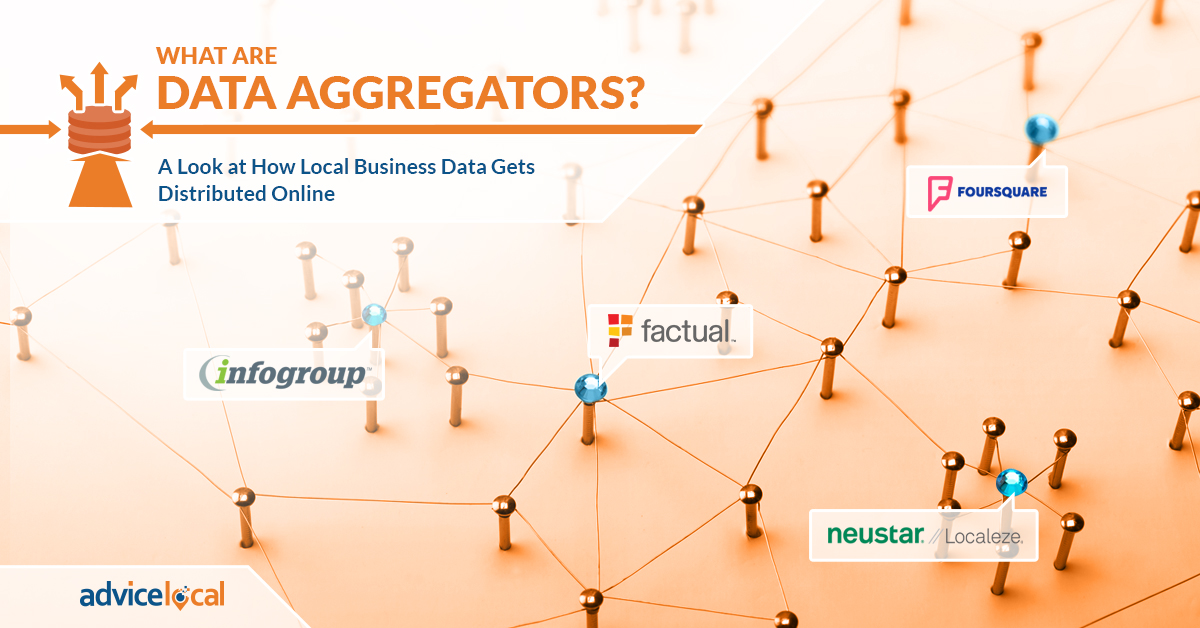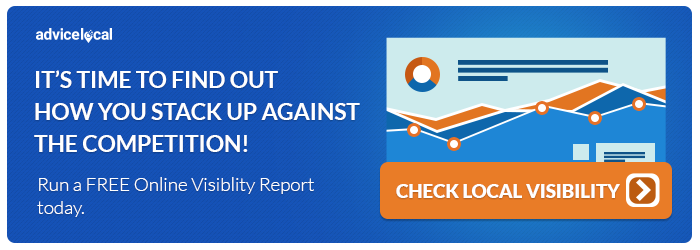Have you ever wondered how business data gets distributed across the web? Or why local businesses sometimes appear in directories without ever having submitted a listing themselves? It all comes down to data aggregators.
What is a Data Aggregator?
Data aggregators are data mining systems that spread business information online. They collect and share business data with a multitude of sources, including search engines like Google.
The Role of Data Aggregators in Local Search
Data aggregators are responsible for transmitting much of the data that exists in the local search ecosystem. They propagate a business’ information to a variety of publishing outlets, including search engines, social media platforms, review sites, and business directories.
Although data aggregators are very good at spreading data around, they can’t differentiate between accurate and outdated information. So it’s up to local businesses to ensure aggregators have accurate listing data, including the name, address, and phone number (NAP) of each business location.
Otherwise, the business will face a series of problems caused by bad data, including duplicate listings, inconsistent NAP, and inaccurate local citations. Not to mention that having a disjointed local presence hurts the business’ reputation among search engines and consumers.
Meet the Data Aggregators Behind the Local Search Ecosystem
In the United States, there are four major players that disseminate business data online.
1. Infogroup
Infogroup’s proprietary databases contain information on businesses and consumers in the US and around the world. Their data is accessible through a number of different websites, including infoUSA.com, Salesgenie.com, and onesource.com.
2. Localeze
Neustar Localeze distributes data to more than 100 search platforms, mobile apps, and navigation systems, including Yahoo! and Nokia. Data provided by Localeze allows Nokia to provide up-to-date business details to its in-car navigation system.
3. Foursquare
At 55M+ users it is the leading location-based social network. Users may retrieve details on local businesses, receive recommendations, or check in to locations publicly. With 70M+ recommendations & over 7B check-ins to local businesses.
4. Factual
Factual places an emphasis on providing real-time data to mobile systems. In addition to feeding data to publishers like the Weather Channel and Yelp, Factual helps power Apple products, Bing, Facebook, and Uber. Factual maintains data for more than 100 million local businesses and points of interest in 50 different countries.
Local Businesses Need to Take Control of Their Data
Monitoring business citations for inaccuracies and submitting accurate details to aggregators is one of the most important ways local businesses can keep their data clean. Get in touch to find out how Advice Local can help manage online data for your business or the businesses you represent!
Don’t have a dashboard yet? Schedule a demo today!





Thank you for the article. I never new these existed and were important. I have just sent my information in